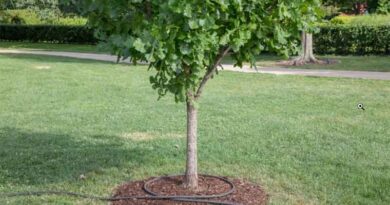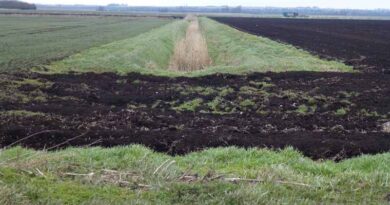£609K awarded to explore Native Scots Pine trees vulnerability to disease
09 November 2022, UK: The UK’s Biotechnology and Biological Sciences Research Council has awarded £609K to a collaborative partnership led by the James Hutton Institute to understand how a tree’s microbiomes (the bacteria, fungi and viruses that exist in/on the tree) affects its vulnerability to disease.
Trees can play a critical role in combatting our current biodiversity and climate crises. The UK aims to increase its woodland cover from 13% to 19% to contribute to its target of being carbon neutral by 2050. In this context, an understanding of the factors governing the arrival and spread of tree diseases, and how they impact tree health, are fundamentally important.
A key challenge in tree disease research is to understand how the interactions between the tree and its associated microbiome affect disease incidence and severity. These interactions are affected by the genetic make-up of the tree, environmental conditions, and the combination of microbial species in the tree’s microbiome.
The project team includes experts from The UK Centre for Ecology & Hydrology, Forest Research, and the University of St Andrews. The team are focusing on the pine tree disease Dothistroma needle blight, a serious pathogen that detrimentally affects the growth and life span of over 100 pine species worldwide including our native Scots Pine.
Dr Sue Jones, a computational biologist at the James Hutton Institute and lead for the project said: “This is a very exciting opportunity that combines a team with expertise in computational biology, ecological genetics and tree pathology to address how a tree’s genetic makeup and microbiome combine to influence tree health.”
The project will use a Scots pine experiment that was planted in 2012 in the Scottish Borders, in which all 672 trees have been genotyped and carefully tracked since planting to measure growth, reproduction, and disease symptoms. Then, before and after disease develops, the project will sequence a ‘soup’ of DNA from needles from each of the trees to identify all the microbes living in/on them and use computer modelling to predict which microbes may influence vulnerability to Dothistroma needle blight.
Dr Stephen Cavers, who works on tree genetics at the UK Centre for Ecology & Hydrology, said: “We have already learned a great deal about genetic diversity in trees and how important it is for their resilience, but we are just at the start of understanding the role of microbes in tree health. This project will be a big step in advancing our understanding of this vital part of the living world.”
Dr Carolyn Riddell, who studies tree pathology at Forest Research said “This is a comprehensive and bold project that will provide a rich source of data to begin to deepen our understanding of the connections between trees and the microbial world they exist alongside. Excitingly the project will reveal the benefits these relationships can bring to tree health and resilience.”
Also Read: Agriculture and the agricultural economy is the strength of India: Union Agriculture Minister
(For Latest Agriculture News & Updates, follow Krishak Jagat on Google News)















